| |
|
|
Archive
|
| God and Government: Brazil beyond Catholicism |
| September 28, 2018 |
No longer a Catholic-majority country, Brazil is home to fast-growing Pentecostalism, Afro-Brazilian traditions and the rise of the religious nones. |
|
|
|
|
|
|
|
| Pentecostalism finds rapt audience in Brazil's working, middle classes - and even its 'killable people' |
September 28, 2018 |
|
In the latest episode of our God and Government series, supported by the Henry R. Luce Foundation, we travel to Brazil, the world’s largest Catholic country. Big changes are underfoot and the country is no longer Catholic majority. The 20th century saw an enormous rise in evangelical Christianity in Brazil, specifically Pentecostalism. Sociologist Andrew Johnson of Metro State University embedded himself in the prisons of Brazil to learn why the most marginalized people in the country are so drawn to the Pentecostal message. Then, we learn about the legacy of Catholicism and Protestantism in Brazil, and how the religious landscape has changed over time, from professor Andrew Chesnut of Virginia Commonwealth University.
Andrew Johnson, law enforcement and criminal justice professor at Metropolitan State University and author of If I Give My Soul: Faith Behind Bars in Rio de Janeiro, soon to be a documentary
Andrew Chesnut, professor of religious studies at Virginia Commonwealth University and author of Born Again in Brazil: The Pentecostal Boom and the Pathogens of Poverty
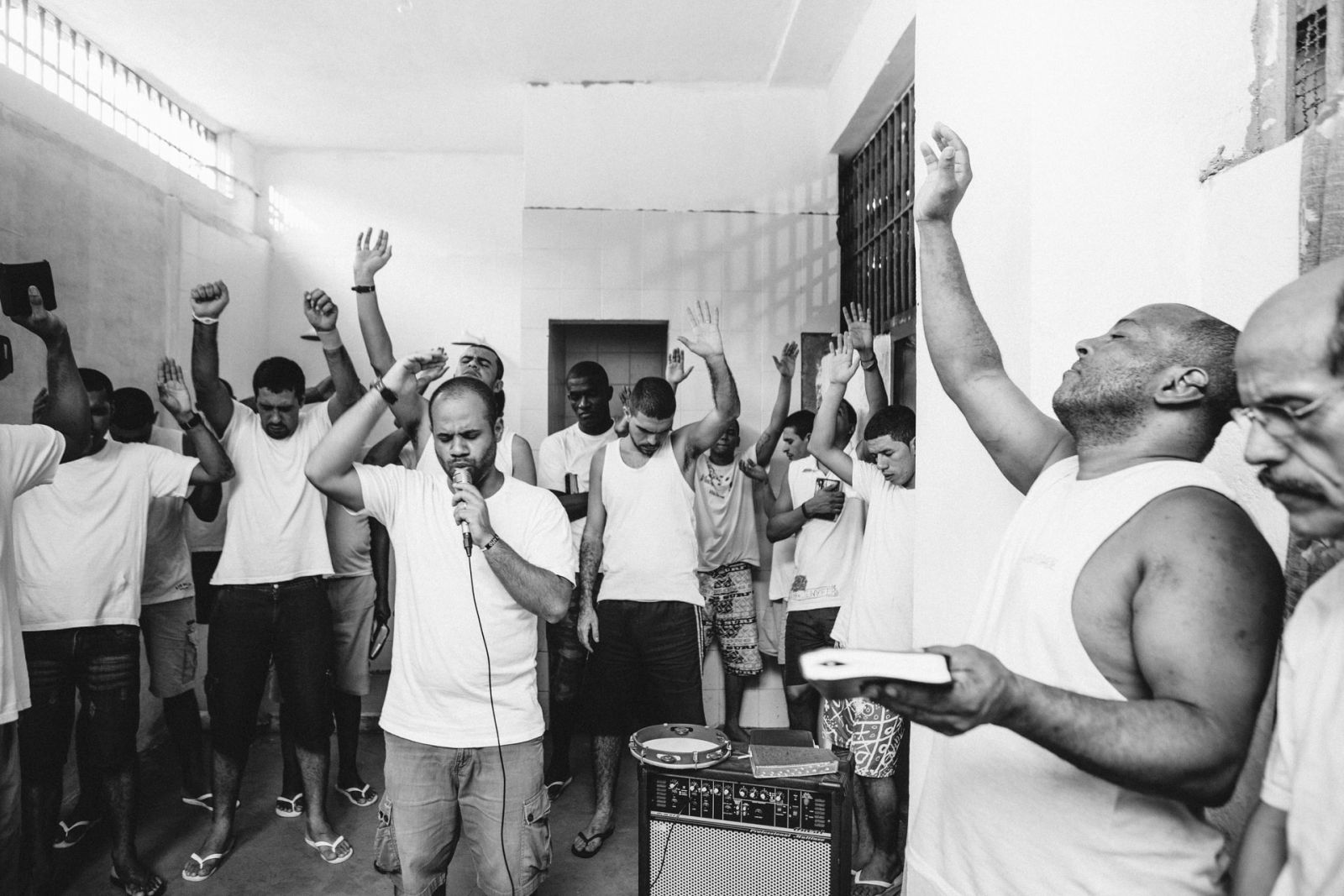
Inmates in a Brazilian prison hold a Pentecostal worship service.
(Photo by Phil Anema, courtesy of USC Center for Religion and Civic)
Religious studies professor Andrew Chesnut (right) holds the Brazilian flag.
(Photo courtesy of Andrew Chesnut)
|
|
|
|
 |
|
| Evangelicals in Brazil turn the political tide |
September 28, 2018 |
|
The evangelical Christian block makes up one third of Brazil’s Congress, and one particular Pentecostal church has been effective at mobilizing its voters: the Universal Church of the Kingdom of God. Last year, UCKG bishop Marcelo Crivella became the first bishop of a Pentecostal church to be elected mayor of a major Brazilian city — in this case, Rio de Janeiro. And as more evangelical leaders come into power, politics in Brazil are starting to shift toward the right. Reporter Catherine Osborn brings us a story from the field, which examines whether Crivella is really keeping church and state separate as mayor.
Catherine Osborn, correspondent in Rio de Janeiro
(Inset image: Marcelo Crivella gives a speech in Rio de Janeiro.)
Street vendors protest a plan by Rio's Mayor Marcelo Crivella to arm city guards, who the vendors say harass them and steal their wares.
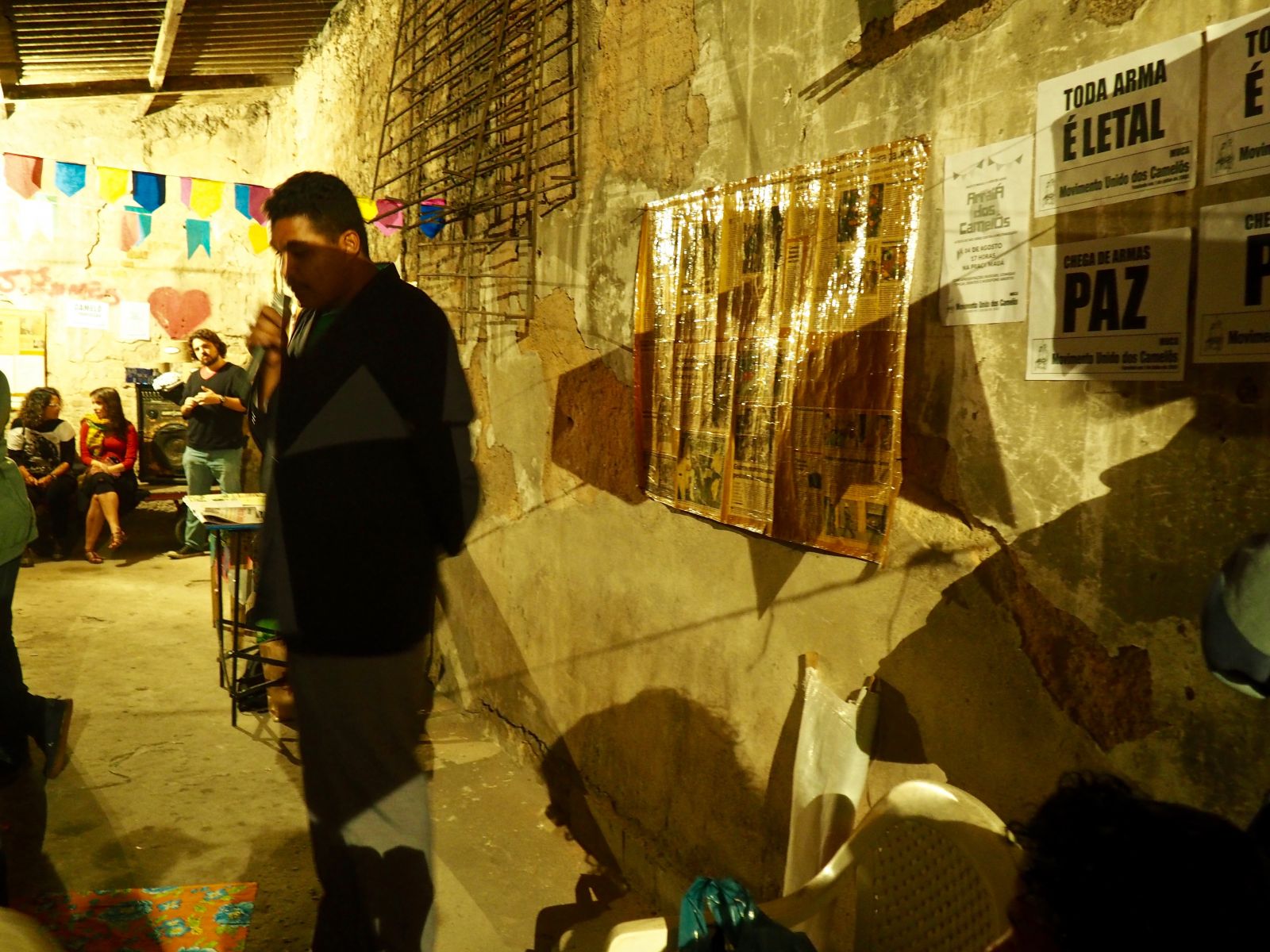
Cosme Felippsen (center) speaks against a plan to arm city guards during a protest by street vendors. He says his nephew was killed by local police, who are known to shoot suspected criminals.
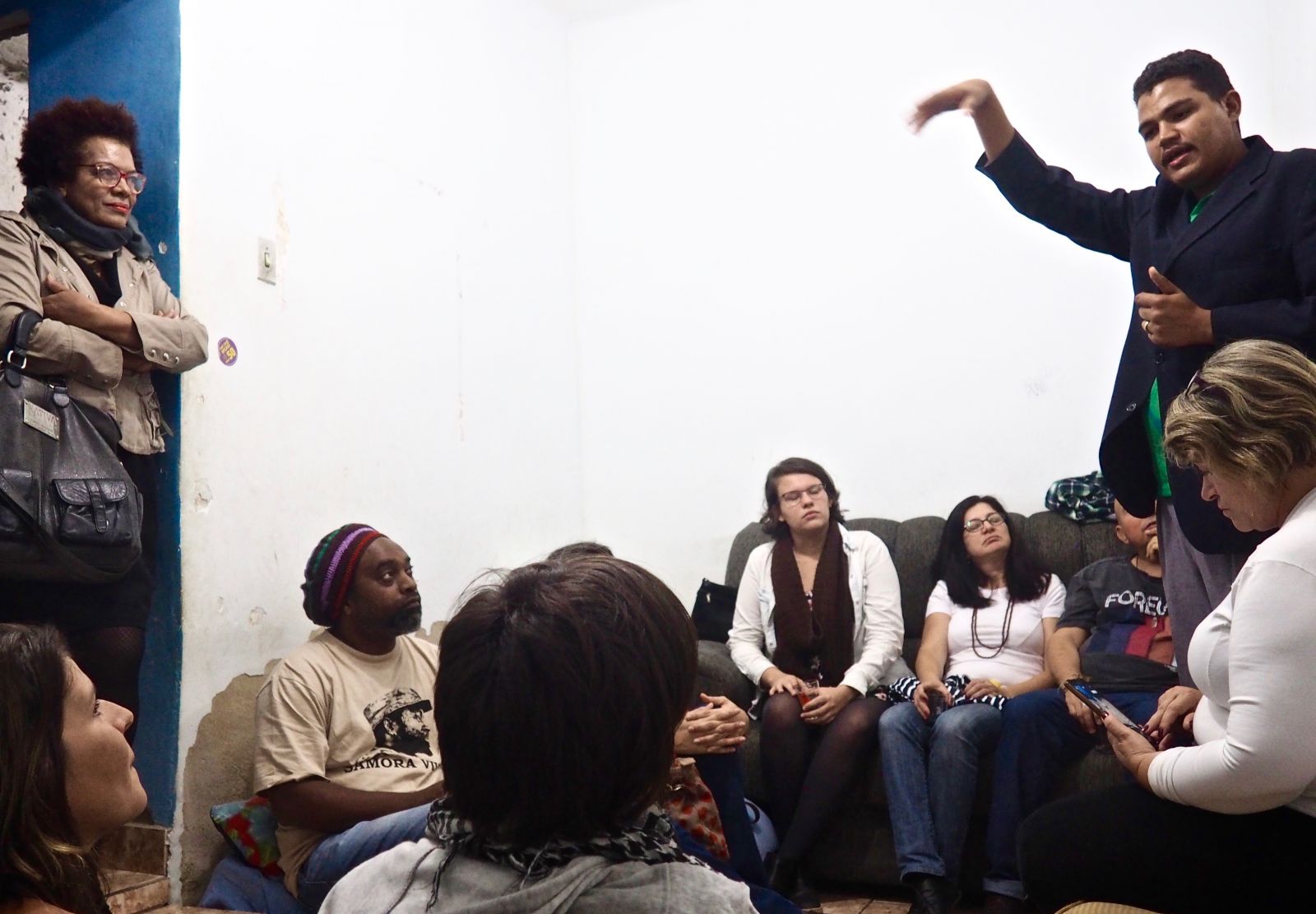 Cosme Felippsen (far right) at home with his family (Photos by Catherine Osbborn)
Cosme Felippsen (far right) at home with his family (Photos by Catherine Osbborn) |
|
|
|
 |
|
| Batalá Washington brings Afro-Brazilian beats to DC |
September 28, 2018 |
|
Not everyone in Brazil is Catholic or Protestant; about three to four percent of Brazilians practice folk religions, which mesh the worship of traditional African deities with Catholic practices. A form of samba called samba reggae that originates in the area of Brazil with the most African descendants, Bahia, uses rhythms that correspond to these deities, or orishas. But samba reggae is a style of music anyone can enjoy, and people all around the world are doing just that. Producer Melissa Feito brings us a story of an all-women’s band called Batalá Washington that’s celebrating Afro-Bahian culture and the strength and creativity of women in DC.
Watch a mini-documentary about Batalá Washington here or a video from a 2018 performance here.
 Most of the members of Batalá Washington had never played drums before joining, but many say they had always dreamed of playing.
Most of the members of Batalá Washington had never played drums before joining, but many say they had always dreamed of playing.
(Photo by Preston Low | Facebook)
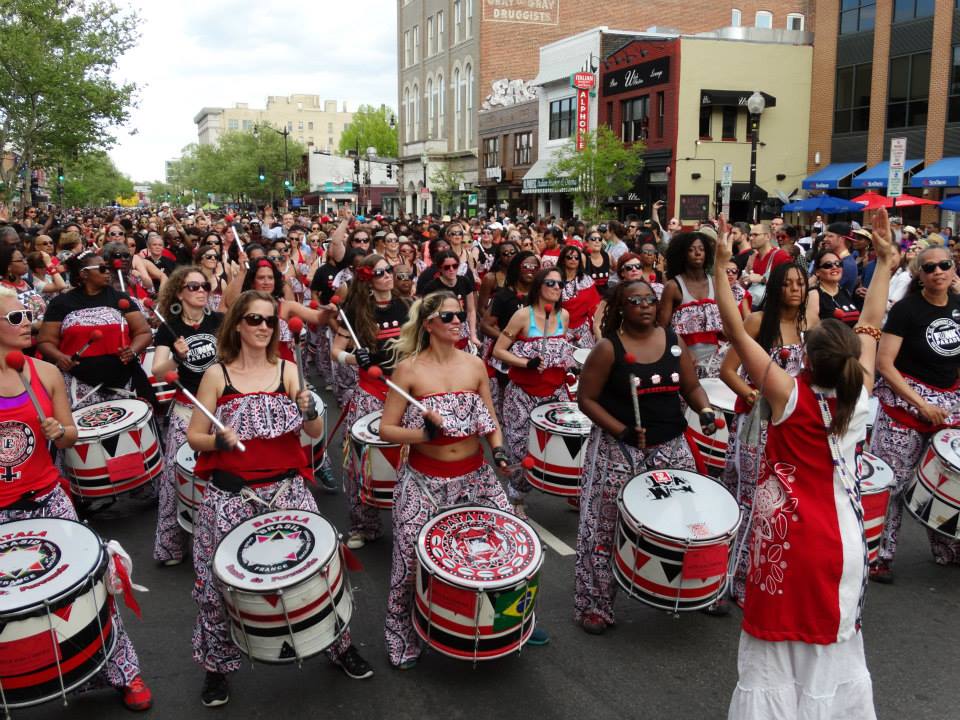 Batalá Washington is unique among the many chapters of Batalá in that it is an all-women group. Members say the band wants to create an inclusive and safe space.
Batalá Washington is unique among the many chapters of Batalá in that it is an all-women group. Members say the band wants to create an inclusive and safe space.
(Photo by Sharon Pendana | Facebook)
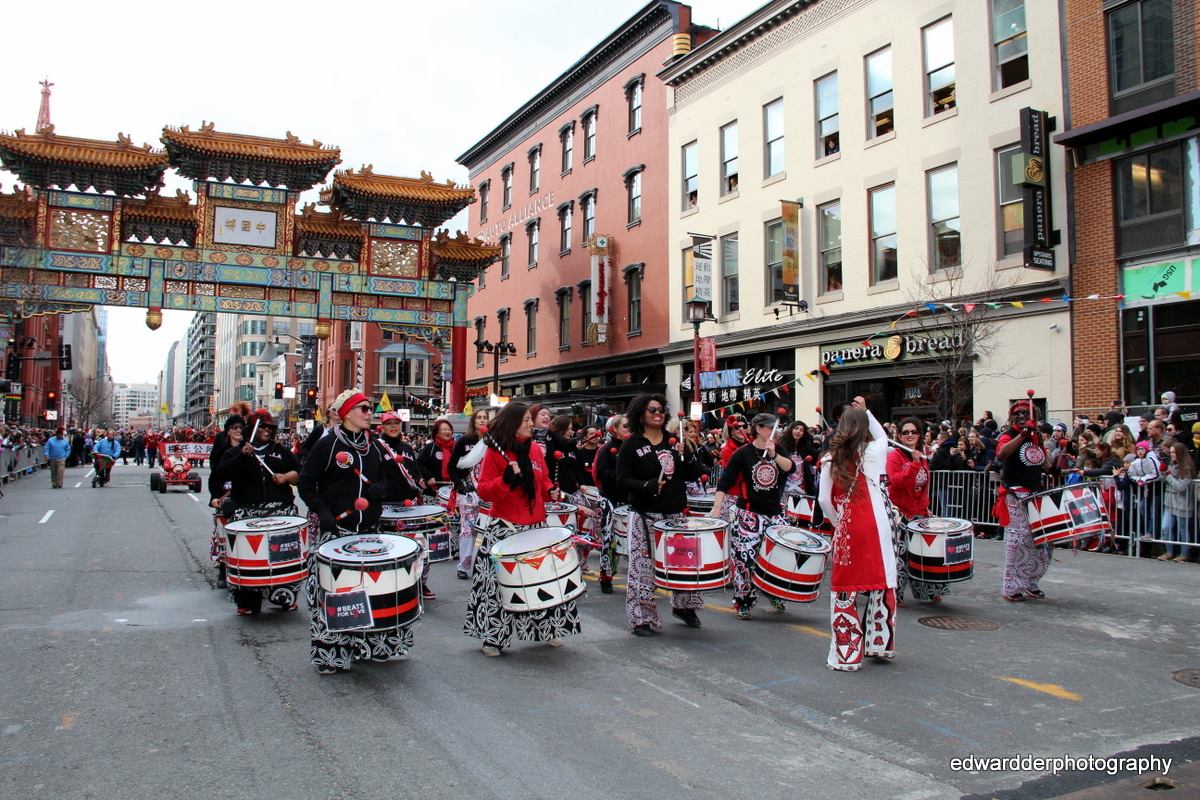 Batalá Washington performs at the 2017 Chinese New Year Parade.
Batalá Washington performs at the 2017 Chinese New Year Parade.
(Photo by Edward Der Photography, via Facebook)
|
|
|
|
 |
|
|
|
|
|
|
|
|